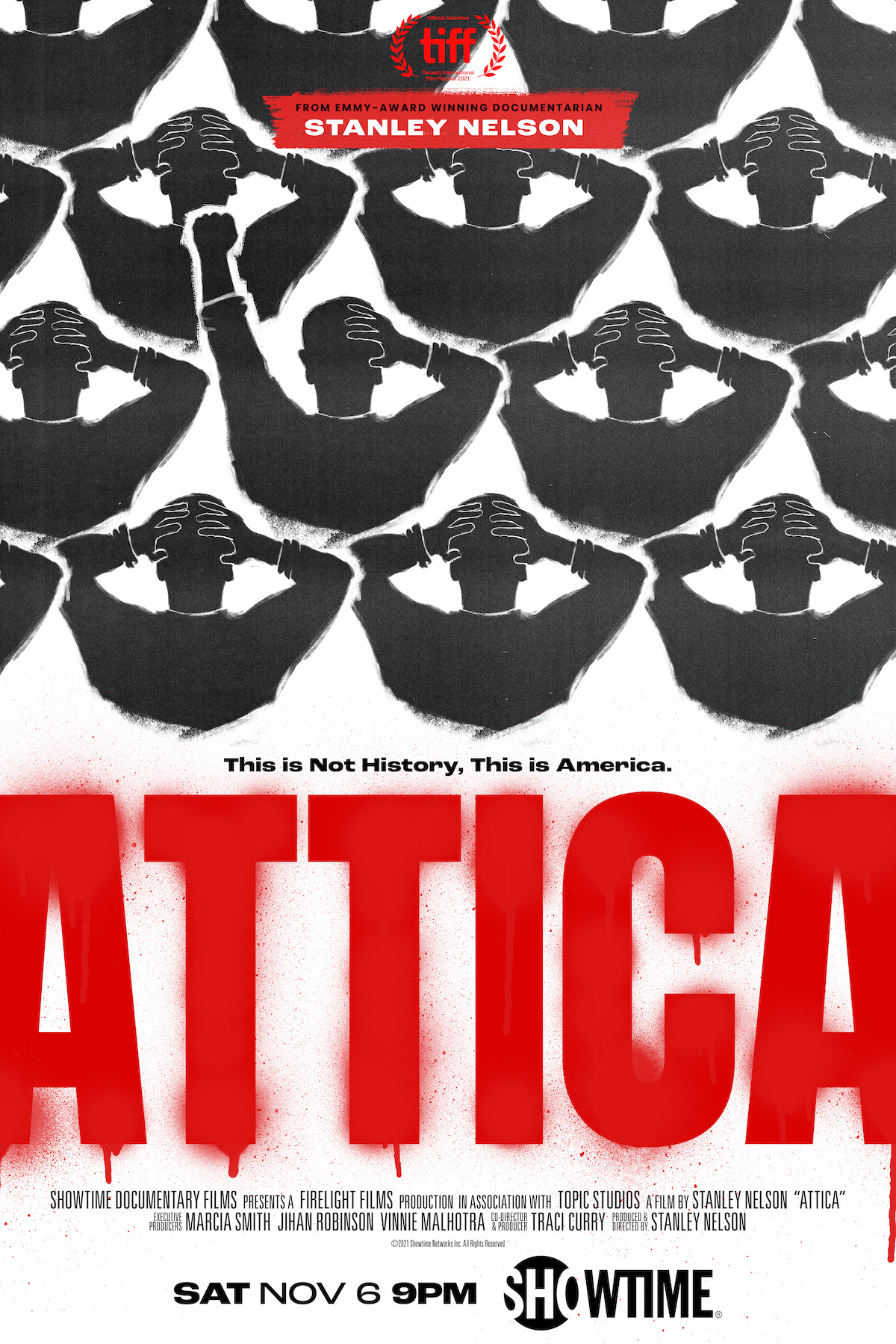Doc Corner: 'Attica'
 Thursday, November 4, 2021 at 1:13PM
Thursday, November 4, 2021 at 1:13PM By Glenn Dunks
 “Attica! Attica!”
“Attica! Attica!”
The memory of the Attica Correctional Facility revolt has lingered throughout pop culture. Whether it was on the periphery of Best Picture nominee Dog Day Afternoon, inspiring a season-long story arc on Orange is the New Black, or as the direct subject of literature like Heather Ann Thompson’s acclaimed Blood in the Water, and in movies across cinema and TV. For our purposes, there have already been several documentaries about it, perhaps most notably Cinda Firestone’s 1974 doc Attica and Brad Lichtenstein’s Ghosts of Attica from 2001.
If you have seen all of these then it may feel like there isn’t much to say on the subject that dates back to September 9–13, 1971. And having only watched Firestone’s incredible and matter-of-fact feature some time last year (while unaware of a new titles being in the works), I did certainly remember many of this sorry saga’s painful and tragic moments. However, director Stanley Nelson and co-director Traci Curry have their own wealth of story to tell that makes for frequently fascinating storytelling...
Attica sticks exclusively to the timeline of the revolt (Wikipedia labels it a ‘riot’, which seems… incorrect), leaving its after effects to mere title cards at its end. Even then, the story does feel as it if its whizzing by, while at other times it becomes clearer that Nelson and Curry are latching on to themes and ideas that are of particular interest to them. Nothing wrong with that, of course. But particularly when viewed through a 2021 lens, it feels like there were moments ripe for deeper investigation that come across as after-thoughts.
Still, the archival footage on display here is remarkable and provides a lot of power and much for the viewer to take in. Plentiful use of talking heads from witnesses offers even deeper insight and thank heavens they didn’t succumb to misleading trends that suggest traditional to-camera interviews are antiquated. While the directors and editor Aljernon Tunsil could have perhaps stood to do something a bit more interesting with style and form, what is here is nevertheless a polished guide through a harrowing and monumental event.

Many will no doubt find themselves wanting the miniseries version of this that more neatly positions the event in history, but to that thought Nelson and Curry trust the audience is smart enough to be able to make those links on their own. That the film doesn’t need to stretch itself too far to highlight the fact that much of the underlying themes that led to the revolt (as well as the tragic bloodshed that brought about its end) are still alive and well is of course more of a damning for contemporary America than a fault of the movie.
But the story of Attica needn’t rely on any individual’s knowledge of anything else beyond the very basic idea that American prisons were (and are) inhumane cells often left to be run and operated by racists and bigots. Footage here of guards shouting about white power—following the state-sanctioned executions of then unknown numbers of black prisoners—are not surprising. But they are still shocking. Not as shocking or confronting as the photography of prisoners bodies laying death in muddy pools of blood, of course. These images, which help conclude Attica should take you aback, as should just about everything else in the documentary.
If you’ve been paying attention, then you probably don’t need a film like this to remind you what the line on Attica has been and in many ways has remained. But while what Attica does is not exactly new, it comes at a time when its themes are as relevant as ever. Firestone’s 1974 doc of the same name is readily available, and I would recommend that one even more. But Nelson and Curry have made a powerful feature that offers something worth hearing in 2021.
Release: After a brief theatrical run, Attica will premiere on Showtime this Saturday the 6th of November.
Awards chances: Stanley Nelson has actually won three Emmy Awards (for Freedom Riders and The Murder of Emmett Till), but I suspect Showtime will be gunning for an Oscar here given its theatrical qualifying run. Nelson has had a long career that the Oscar doc branch has yet to respond to, but I suspect it will make the 15-title shortlist with ease. Whether it can make the final nominations will depend on the whims of the branch and whether they want to recognise traditional doc styles or not. Some years they’re friendlier to new forms of doc filmmaking than others. If this is one of those years, then Attica could very easily miss out. For now, I’d feel confident in predicting it.
 Attica,
Attica,  Doc Corner,
Doc Corner,  Review,
Review,  documentaries
documentaries 

